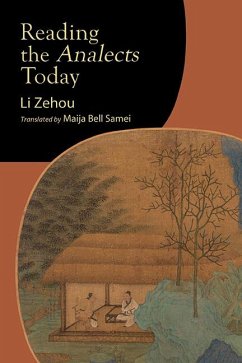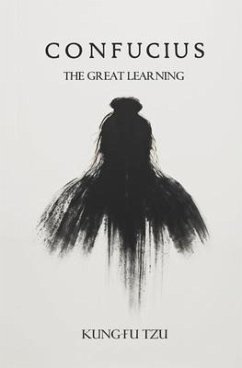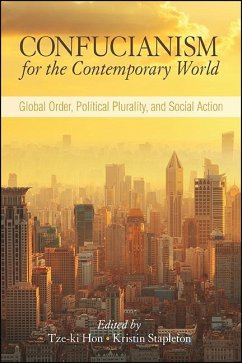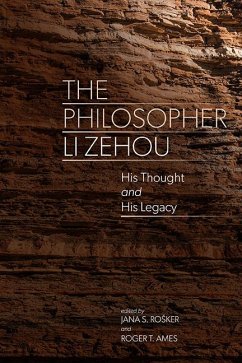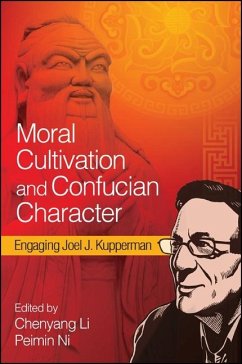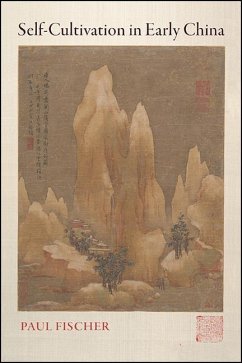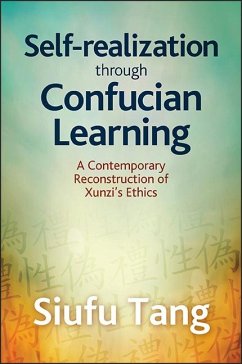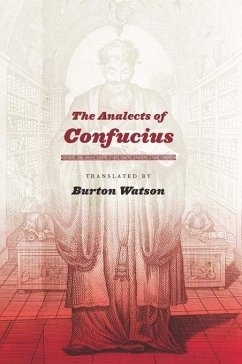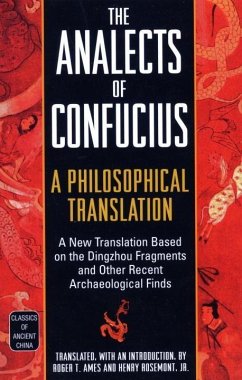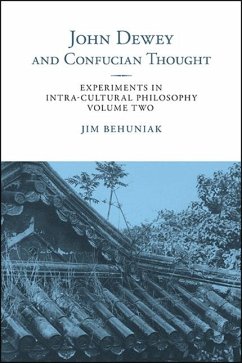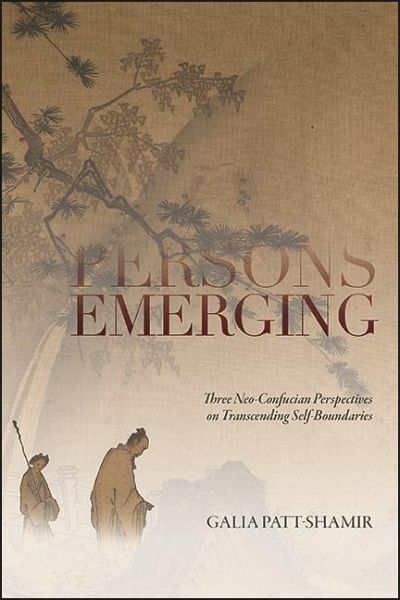
Persons Emerging (eBook, ePUB)
Three Neo-Confucian Perspectives on Transcending Self-Boundaries
Versandkostenfrei!
Sofort per Download lieferbar
25,95 €
inkl. MwSt.
Weitere Ausgaben:

PAYBACK Punkte
13 °P sammeln!
Offers three neo-Confucian understandings of broadening the Way as broadening oneself, through an ongoing process of removing self-boundaries.Persons Emerging explores the renewed idea of the Confucian person in the eleventh-century philosophies of Zhou Dunyi, Shao Yong, and Zhang Zai. Galia Patt-Shamir discusses their responses to the Confucian challenge that the Way, as perfection, can be broadened by the person who travels it. Suggesting that the three neo-Confucian philosophers undertake the classical Confucian task of "broadening the way," each proposes to deal with it from a different an...
Offers three neo-Confucian understandings of broadening the Way as broadening oneself, through an ongoing process of removing self-boundaries.
Persons Emerging explores the renewed idea of the Confucian person in the eleventh-century philosophies of Zhou Dunyi, Shao Yong, and Zhang Zai. Galia Patt-Shamir discusses their responses to the Confucian challenge that the Way, as perfection, can be broadened by the person who travels it. Suggesting that the three neo-Confucian philosophers undertake the classical Confucian task of "broadening the way," each proposes to deal with it from a different angle: Zhou Dunyi offers a metaphysical emerging out of the infinitude-finitude boundary, Shao Yong emerges out of the epistemological boundary between in and out, and Zhang Zai offers a pragmatic emerging out of the boundary between life and death.
Through the lens of these three Song-period China philosophers, the idea of "transcending self-boundaries" places neo-Confucian philosophies within the global philosophical context. Patt-Shamir questions the Confucian notions of person, Way, and how they relate to human flourishing to highlight how the emergence of personhood demands transcending metaphysical, epistemological, and moral self-boundaries.
Persons Emerging explores the renewed idea of the Confucian person in the eleventh-century philosophies of Zhou Dunyi, Shao Yong, and Zhang Zai. Galia Patt-Shamir discusses their responses to the Confucian challenge that the Way, as perfection, can be broadened by the person who travels it. Suggesting that the three neo-Confucian philosophers undertake the classical Confucian task of "broadening the way," each proposes to deal with it from a different angle: Zhou Dunyi offers a metaphysical emerging out of the infinitude-finitude boundary, Shao Yong emerges out of the epistemological boundary between in and out, and Zhang Zai offers a pragmatic emerging out of the boundary between life and death.
Through the lens of these three Song-period China philosophers, the idea of "transcending self-boundaries" places neo-Confucian philosophies within the global philosophical context. Patt-Shamir questions the Confucian notions of person, Way, and how they relate to human flourishing to highlight how the emergence of personhood demands transcending metaphysical, epistemological, and moral self-boundaries.
Dieser Download kann aus rechtlichen Gründen nur mit Rechnungsadresse in A, D ausgeliefert werden.




